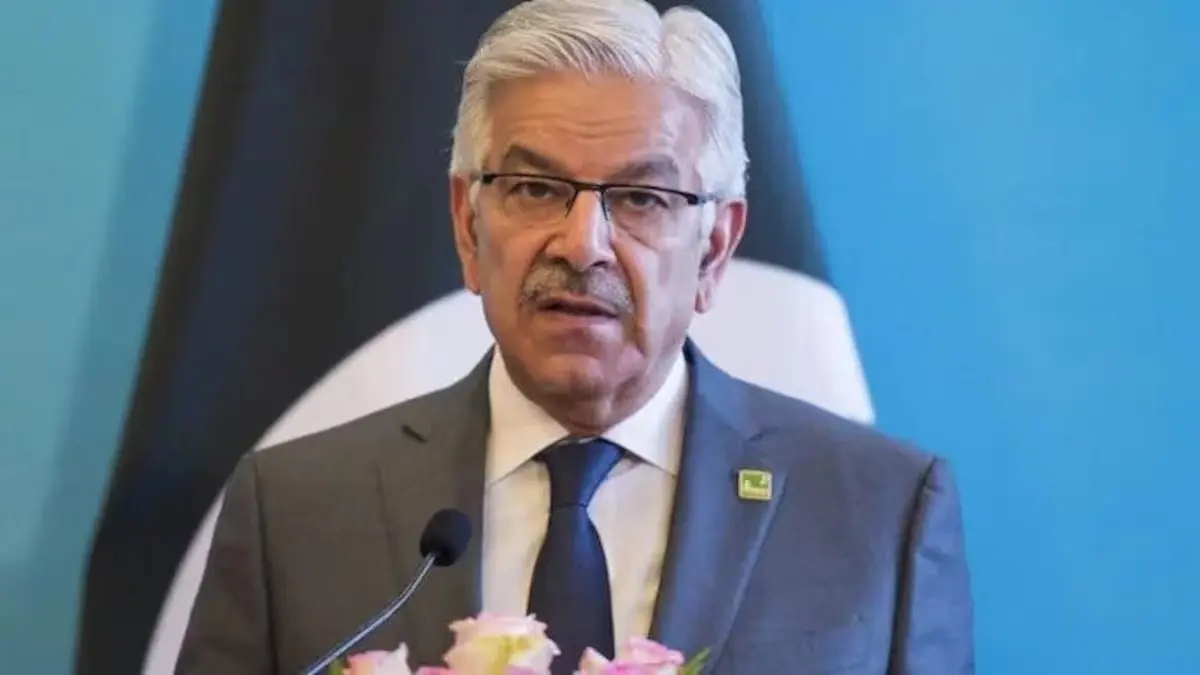Updated 7 May 2025 at 15:59 IST
Pakistan Minister Khawaja Asif Takes U-Turn After India Strikes Terror Hubs Across Border: Ready to Wrap Up Tensions If...
Khawaja Asif earlier likened the situation to the Gaza conflict, accusing India of adopting what he called an “Israeli mentality.”
- World News
- 3 min read

Operation Sindoor: Soon after India’s precision non-contact military strikes on terror hubs in Pakistan and PoK, Pakistan’s Defence Minister Khawaja Asif made a dramatic U-turn. After initially threatening large-scale retaliation saying “either we survive or no one does” Asif told a local news channel that Pakistan was ready to de-escalate “if India halts further military operations” along the border.
“This has been initiated by India. If India backs down, we will definitely wrap up these things,” he stated, adding, “As long as we are under fire, we have to respond.”
Operation Sindoor: India Targets Nine Terror Sites
India’s armed forces launched Operation Sindoor, targeting four terror facilities in Pakistan’s Punjab and five in Pakistan-occupied Kashmir (PoK).
These locations, including Muzaffarabad, Kotli, Sialkot, Barnala, and Bahawalpur, were reported to be key launchpads for terrorist infiltration into Indian territory by groups such as Lashkar-e-Taiba, Hizbul Mujahideen, and Jaish-e-Mohammed.
Advertisement
The operation followed the April 22 Pahalgam terror attack in which 26 civilians, mostly tourists, were shot dead.
India’s Message: Measured, Decisive, and Responsible
At a press briefing, Wing Commander Vyomika Singh and Col Sofiya Qureshi, joined by Foreign Secretary Vikram Misri, clarified India’s position: the strikes were non-escalatory, proportionate, and aimed solely at eliminating terror infrastructure.
Advertisement
“No military establishment was targeted, and there are no civilian casualties. These were anti-terror precision strikes,” Wing Commander Singh emphasized.
Foreign Secretary Misri described the Pahalgam attack as an act of psychological warfare, where families of the victims were deliberately traumatized.
“Victims were shot in the head at close range, in front of their families. Terrorists told them to ‘go tell your Modi,’ in a bid to break India’s will. Operation Sindoor is our reply to that cowardice,” Misri said.
Pakistan’s Attempts to Globalise the Crisis Fail at UNSC
Pakistan’s efforts to internationalize the issue at the United Nations Security Council (UNSC) fell flat.
While Islamabad pushed for global condemnation of India, the UNSC refrained from issuing a statement. Instead, tough questions were directed at Pakistan over the continued presence of terror camps on its soil.
Earlier, Pakistan’s UN Ambassador Asim Iftikhar Ahmad claimed readiness to defend national sovereignty, but reiterated that Islamabad does not seek confrontation another sign of a toned-down narrative.
Khawaja Asif earlier likened the situation to the Gaza conflict, accusing India of adopting what he called an “Israeli mentality.”
“If our existence is in danger, then either we survive or no one does,” he warned.
Published By : Isha Bhandari
Published On: 7 May 2025 at 15:33 IST
